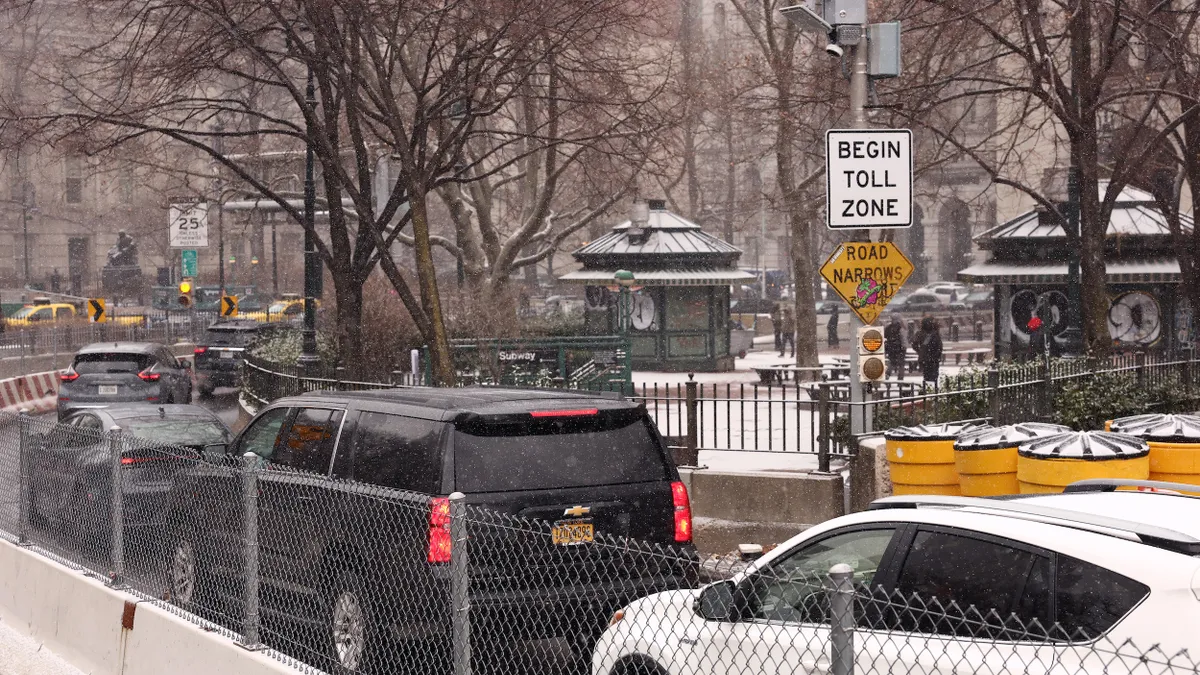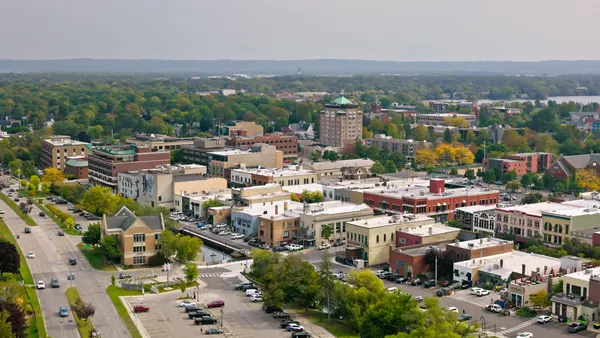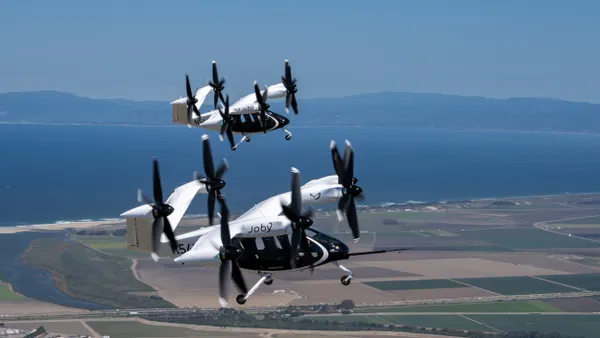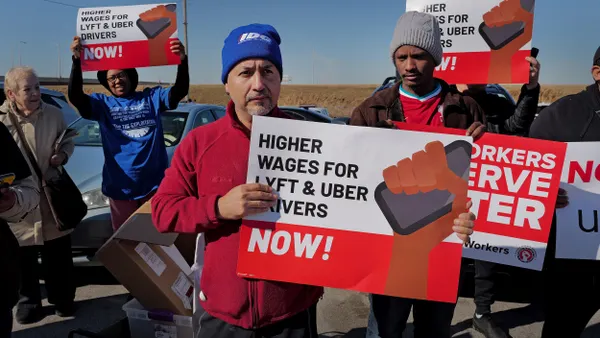New York’s controversial program to charge drivers entering Manhattan’s central business district went into effect Sunday, although legal and political challenges remain.
While London, Stockholm and Singapore have had congestion pricing for years, New York’s program is the first in the U.S. It comes as New York City and Chicago tied as the most congested cities in the nation in 2024, according to Inrix’s annual traffic scorecard report, released today. Drivers in these cities lost 102 hours to traffic delays over the course of 2024, according to the report.
The battle to prevent New York’s congestion pricing program from going into effect went down to the wire Friday, when a federal judge denied a request by the state of New Jersey for a temporary restraining order. According to the Regional Plan Association, 86% of New Jersey commuters use mass transit to travel into Manhattan.
Transit supporters applauded the implementation of the tolling program. “This transformative program will upgrade unreliable and inaccessible infrastructure, speed up ambulances and buses starting today, and cut toxic air pollution in the city and suburbs,” said Riders Alliance Senior Organizer Danna Dennis, in an email statement. The Congestion Pricing Now coalition said in an email statement that “This thoughtful, expertly designed, decades-in-the-making policy will benefit the entire region.”
Most drivers using a valid toll transponder will pay $9 to enter Manhattan at or below 60th Street during peak times, with reduced rates at night. Trucks and some buses pay a higher rate, while commuter buses and vans and school buses are eligible for exemptions. Other exemptions and discounts are available to low-income owners of vehicles and those whose disabilities or health conditions prevent them from using transit. The revenues are expected to raise up to $15 billion for the New York Metropolitan Transportation Authority’s capital investment program.
However, challenges to the program remain. The same federal judge that allowed the program to go forward also ordered the MTA and the Federal Highway Administration to detail how they will address increased traffic and pollution in New Jersey. A spokesperson for New Jersey Gov. Phil Murphy told NorthJersey.com, “We will continue fighting against this unfair and unpopular scheme.”
President-elect Donald Trump made clear his opposition to the tolling plan in a May 2024 social media post in which he vowed to “terminate” the program. House Republicans inserted a prohibition against the program in a fiscal year 2025 appropriations bill passed in July 2024. While that went no further, House Speaker Mike Johnson is looking to pass a budget reconciliation package, which can be passed in the Senate on a simple majority.
Timeline of New York's congestion pricing plan
-
April 1, 2019New York state enacts a tolling program for New York City designed to reduce traffic congestion in Manhattan and generate revenue for the New York Metropolitan Transportation Authority.
-
March 30, 2021The Federal Highway Administration tells New York authorities they must conduct an environmental assessment of the project including stakeholders from Connecticut, New Jersey and New York.
-
May 5, 2023The FHWA conditionally approves the congestion pricing plan.
-
June 27, 2023New York Gov. Kathy Hochul announces the FHWA’s final approval of the program, saying, “Congestion pricing will reduce traffic in our crowded downtown, improve air quality and provide critical resources to the MTA.”
-
March 27, 2024The MTA board approves toll rates for the congestion pricing plan, setting the stage to begin collecting tolls. By this point, the state of New Jersey and some civil rights and labor organizations have filed lawsuits against the MTA to stop the program.
-
June 2New York Gov. Kathy Hochul orders an indefinite pause to the tolling program, which was set to begin June 30, 2024.
-
Nov. 14, 2024Under pressure to reinstate the congestion pricing plan before President-elect Donald Trump takes office, Hochul annouces the program will go forward with lower tolls.
-
Nov. 17, 2024The MTA board approves the revised plan and sets midnight Jan. 5, 2025, for tolls to begin.
-
Jan. 5, 2025New York’s congestion pricing plan goes into effect.












